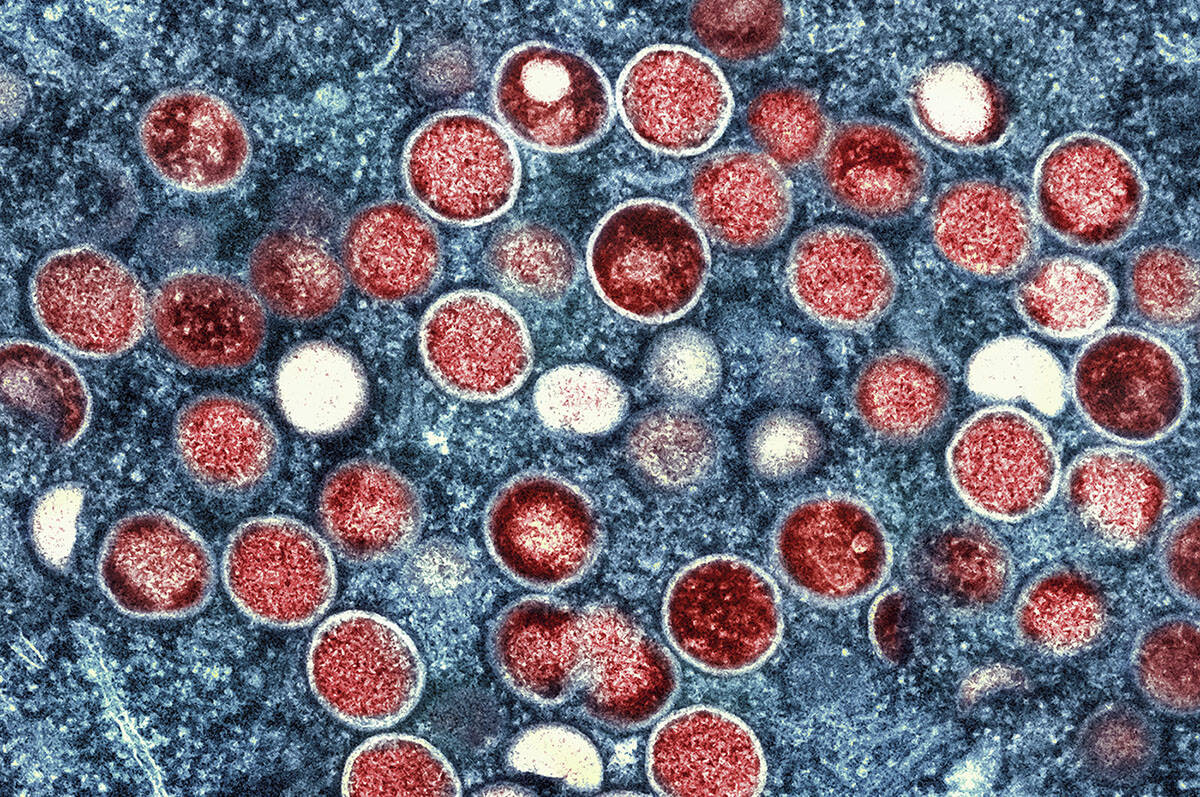Monkeypox cases in Clark County increase to 166

Monkeypox cases in Clark County increased over the past week to 166 from 134, or by about 24 percent, a smaller increase than the previous week’s, according to data posted Wednesday by the Southern Nevada Health District.
Last week, confirmed and suspected cases of monkeypox increased by 34 percent.
Cases continue to be seen almost exclusively in men, though anyone can be infected by monkeypox, a once rare virus that this year has caused outbreaks around the globe.
The virus has primarily affected men who have sex with men. In this year’s outbreaks, monkeypox is typically spreading through intimate skin-to-skin contact, especially through direct contact with the characteristic rash or lesions. It also can be spread through respiratory secretions, bodily fluids and shared linens or towels.
In Clark County, cases have been identified in individuals ages 18 to 64, with most between the ages of 25 and 54. Ninety-eight percent of cases have been in men, and the remainder in women, or transgender or gender nonconforming individuals.
Seventy-one percent of cases are in people who identify as LGBTQ and 4 percent as heterosexual. The sexual orientation of the remaining 25 percent is unknown.
The largest percentage of known cases — 31 percent — has been in Latino/Hispanic individuals, followed by Black or African American (25 percent), white (23 percent) and other/multiracial (10 percent). Asians represent 3 percent of cases, American Indians or Alaska natives less than 1 percent, and Native Hawaiians or other Pacific Islanders less than 1 percent. The ethnicity of the remaining 6 percent is unknown.
In the U.S., there have been nearly 19,000 cases of monkeypox since May with no fatalities, according to the Centers for Disease Control and Prevention. The virus is rarely fatal, but can be very painful and lead to scarring.
In Clark County, 3,877 people have been vaccinated against monkeypox. The health district has been giving doses of the vaccine, which is in short supply, to those at high risk, such as close contacts of people known to have, or suspected of having, monkeypox. Also eligible are men and transgender individuals who have sex with men and who have had multiple partners in the past 14 days. The LGBTQ Center and the Huntridge Family Clinic also have been administering the vaccine.
Contact Mary Hynes at mhynes@reviewjournal.com or 702-383-0336. Follow @MaryHynes1 on Twitter.